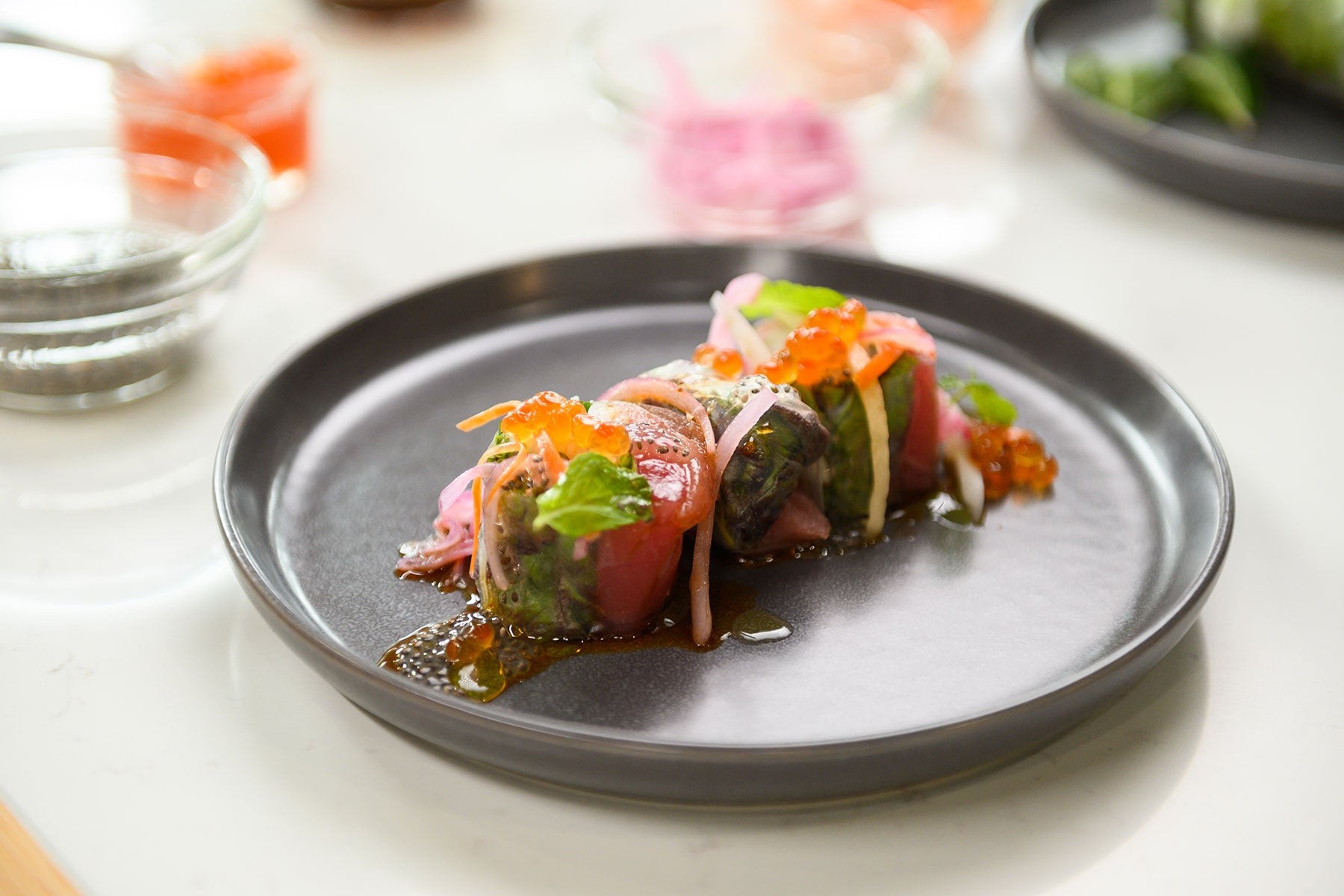Food memories often evoke images of abundance, like holiday feasts. However, for Tu David Phu, a chef and advocate, his earliest food memories are rooted in food insecurity and poverty. Growing up, food wasn’t a given; it was a precious commodity, deeply appreciated whenever it graced the table.
His mother, resourceful and resilient, would gather discarded chicken bones from the local butcher. These bones became the foundation of a simple broth, seasoned with a touch of fish sauce, and served with rice. Sucking on those bones for any remaining meat became a vivid memory. While some might perceive this as a sad experience, for Tu, it was a source of genuine joy. The feeling of fullness, of having something in his stomach, was a primal and profound pleasure.
The Emotional Connection to Food
Both of Tu’s parents suffered from PTSD stemming from the war in Vietnam. Life was challenging, and food was a constant reminder of their circumstances. Yet, in his youth, eating offered a positive emotional experience. The chicken bones his mother procured symbolized the preciousness of food and her unwavering dedication to providing for her family. While he initially felt shame about their poverty, he now recognizes the extent of his mother’s efforts, viewing it as a testament to her resilience and ingenuity. Food, he emphasizes, holds different symbolic meanings for each of us.
This early food insecurity, coupled with his parents’ PTSD, profoundly influenced Tu’s life and career path. Witnessing the uncertainty of food rations during wartime instilled a survival mode mentality. Even now, his mother instinctively hides treats, fearing they might be taken away. His father, on the other hand, tends to overeat, a reaction to past scarcity. Tu himself recalls attending family gatherings and consuming as much food as possible, a behavior rooted in his own food insecurity and the desire to experience the satisfaction of being full. These experiences ultimately led him to pursue a career in the food industry.
Beyond the Restaurant: Food as a Tool for Healing
Tu’s journey led him to work in community spaces and non-profit organizations, including rehabilitation programs and Asian health services. He encountered diverse individuals with shared experiences of insecurity, learning from healthcare professionals and gaining valuable insights.
His decision to become a chef stemmed from his understanding of the profound joy and emotion that food can evoke. Providing nourishment, he believes, can bring happiness in its simplest form. When questioned about his absence from the restaurant scene, Tu candidly admits that he often felt unseen in those environments. While he appreciates fine dining, it wasn’t his calling. He now uses his expertise to advise and contribute to storytelling in those spaces. His passion lies in the power of food to impact individuals and communities, extending beyond restaurants to youth centers, rehabilitation facilities, and incarcerated populations.
Embracing Identity Through Food
Tu emphasizes the importance of children embracing their food heritage without shame. He admires figures like Kalamata, who celebrates her identity through her food. He believes that such representation allows children from diverse backgrounds to feel empowered to celebrate themselves. Had he encountered a character like Kalamata in his youth, he might have felt more pride and appreciation for the food his parents provided, and less shame about eating differently from others. Ultimately, every child desires to belong, and representation can help those feeling unseen recognize that there is space for them too.
In conclusion, Tu David Phu’s journey highlights the profound connection between food, memory, and resilience. His experiences underscore the importance of food security and the power of food to heal, connect, and celebrate cultural identity. He challenges us to appreciate the stories behind our meals and to recognize the universal need for belonging and acceptance.
